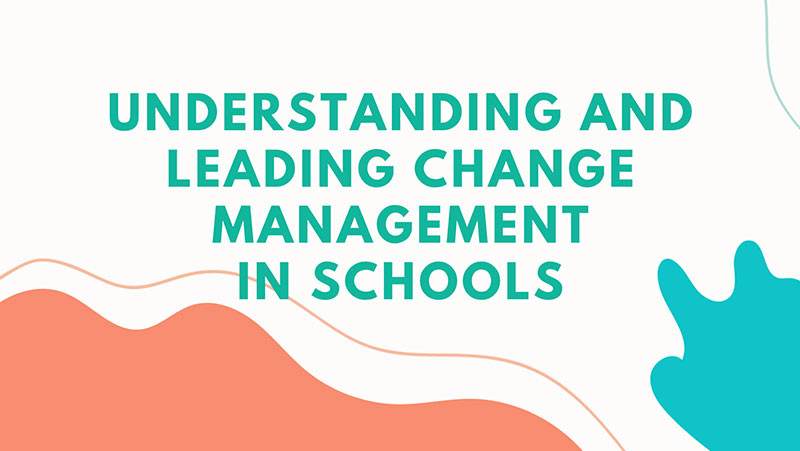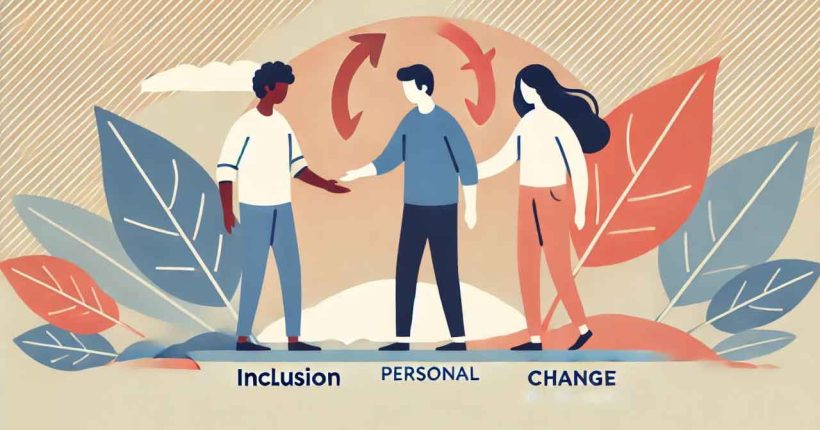The Challenge: Survey Fatigue and Uninformed Decision-Making
Schools and universities in the UK and beyond regularly seek feedback from students, parents, and staff to guide decisions on curriculum, policies, and well-being initiatives. However, survey fatigue has become a major obstacle, with many stakeholders feeling disengaged, skeptical, or rushed into providing opinions without deeper reflection.
The risk?
Decisions that shape the future of education are often made based on incomplete, uninformed, or reactive feedback. Students and parents may feel powerless, assuming they have no alternative but to comply, while teachers and non-teaching staff may feel disconnected from school-wide changes.
Moving Beyond Surface-Level Surveys
Instead of relying on quick, transactional surveys, schools and universities must embrace a personal change management approach—one that respects individual decision-making, provides real-time engagement insights, and encourages a structured response to change.
This approach allows:
✅ Pupils and parents to take the time to make an informed decision—not just react.
✅ A choice to accept or reject changes while having a clear plan of action.
✅ Education and welfare officers to support students through the process.
✅ Real-time data tracking to monitor engagement and adoption of changes.
✅ The entire school community, including leadership, teaching, and non-teaching staff, to have a voice in shaping the future of education.
Key Changes That Affect Schools and Universities
A variety of structural, policy, and academic changes impact pupils, parents, and educators. Below are some of the most pressing changes facing state schools, private schools, and universities in the UK and internationally:
1. Academic and Curriculum Reforms
📌 Transitioning Between Qualifications: Schools frequently shift between qualification systems, such as:
- IGCSE vs. GCSE—Some schools move between these curriculums, impacting subject choices and grading structures.
- A-Levels vs. IB Diploma—International and private schools often face pressure to adapt their post-16 offerings.
- BTEC and T Levels—Vocational education is evolving, requiring schools to adjust pathways for students.
📌 Changes in Assessment and Grading:
- Adjustments in how Pearson Edexcel, Cambridge International, or Ofqual regulate grade boundaries.
- Universities shifting entry requirements based on grading reforms.
📌 Introduction of New Subjects or Pedagogies:
- Schools adopting AI, coding, or climate science into core learning.
- Emphasis on independent research projects like the EPQ (Extended Project Qualification) in sixth forms.
2. Regulatory and Inspection Changes
📌 State Schools:
- Ofsted’s changing inspection criteria influence school priorities.
- Updates to the National Curriculum impacting subject delivery.
📌 Private & International Schools:
- IB Organization updates (e.g., changes to TOK, EE, or CAS requirements).
- Regulatory pressures from CIS (Council of International Schools) or ISI (Independent Schools Inspectorate).
3. Student Well-being and Inclusion Policies
📌 Mental Health Initiatives:
- New pastoral care frameworks requiring staff training.
- Introduction of mandatory well-being surveys—but with what impact?
📌 Diversity, Equity, and Inclusion (DEI) Policies:
- Schools revising uniform policies, religious accommodations, and gender identity support frameworks.
4. University Admissions and Career Pathways
📌 Shifts in University Admissions Criteria:
- Some UK universities moving toward holistic admissions, reducing reliance on predicted grades.
- The impact of post-pandemic admissions trends on subject choices.
📌 Global Mobility & Student Choices:
- Brexit’s impact on tuition fees and university applications for EU students.
- UK students increasingly considering universities in the Netherlands, Canada, or Asia.
How Schools Can Implement a Personal Change Management Approach
Instead of forcing rapid compliance with changes, educational institutions should embrace structured decision-making:
1. Enable Thoughtful Parent & Pupil Decision-Making
📌 Provide interactive change consultation platforms—not just surveys.
📌 Offer clear scenarios (e.g., “If you opt out of this curriculum change, what alternative route would you prefer?”).
📌 Make engagement data transparent—how many parents and pupils support vs. reject the change?
2. Integrate Coaching & Mentorship
📌 Empower education and welfare officers to guide students through changes.
📌 Provide structured career coaching when academic pathways shift.
3. Involve the Entire School Community
📌 Establish teacher and staff councils to give leadership a pulse on frontline concerns.
📌 Use town hall-style meetings to facilitate open discussion, not just top-down decisions.
4. Leverage Real-Time Data for Smarter Adaptation
📌 Track real-time engagement metrics to measure adoption levels of new policies.
📌 Identify trends: Are students from certain demographics more resistant to change?
How can schools improve change engagement? Should real-time data influence decision-making in education? Let’s discuss in the comments!
Scared So What™ Ltd Part of our ESG strategy, we offer for free to schools and universities access to our personal change mangement system and technology, so to make your institution much more inclusive of students and parents.
To know more, get in touch for a demo https://scaredsowhat.com/






